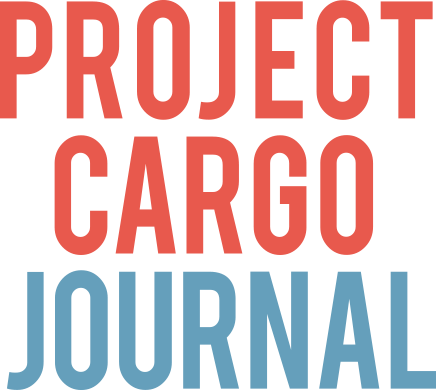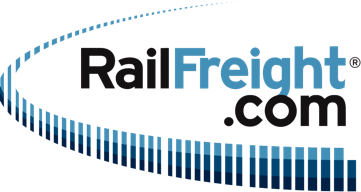The problem of shipping containers being used to smuggle drugs, particularly cocaine, into Europe has reached such a level that both the Belgian and Dutch governments are considering measures that will add costs to the whole container supply chain.
As a direct consequence of narcotics smuggling, government agencies are now considering requiring shipping lines to fit a ‘smart’ seal, costing up to US$200 apiece, to every container shipped from Central America to Belgium and the Netherlands. These and many other preventive measures are the subject of consultations by joint working groups made up of shipping lines and various Belgian and Dutch government agencies.
Fitting, monitoring and responding to alerts generated by smart seals will add costs and complexity to supply chains, including processes at container ports. The pressure is growing, however, for governments to do something at the regulatory level to secure both the physical containers in the supply chain and the digital supply chain from both external interference and corruption from within. Time and again, it seems, in both countries, shipping agency and stevedoring staff and customs officers with the right ‘capabilities’ are being sentenced for complicity in drugs smuggling through the two main ports.
Must try harder
The Hague and Brussels both say that much more effort will be needed. As reported by WorldCargo News Online, in February, meetings held between Belgian/Dutch authorities and the five major lines operating between Central/South America and the North Sea area produced the top level ‘Declaration on the fight against cross-border organised drug crime’. The declaration sets out a broad spectrum of tools to tackle the trafficking of drugs, particularly cocaine, into the Dutch and Belgian ports, including on liner services that call at smaller ports in Latin America, mainly related to fruit shipments.
The declaration was signed in February in Antwerp by no fewer than five cabinet ministers and one deputy minister. These included Belgium’s prime minister, finance minister and justice minister, along with the Dutch justice minister, transport minister and deputy minister for customs. The other signatories were the mayors of Antwerp and Rotterdam, as well as MSC, Maersk, CMA CGM, Hapag-Lloyd and Seatrade.
Smart container seals are high on the agenda as the working group seeks ways to improve security. “We have seen official documents that suggest equipping every container with a smart seal,” Tom Demolder, Hapag-Lloyd’s director for Belgium and the Netherlands, told WorldCargo News.
A smart seal is generally understood to be a device that transmits container status data, such as whether the container is in motion, the door status and sudden changes in internal temperature. But Demolder questioned what is “doable and feasible”.
“They can cost up to US$200,” he said. “Some shipping lines are already testing them on a small scale, which is very useful, as there are many interpretations as to what defines a smart seal. One challenge is how to filter true illegal tampering from the many data transmitted. Customs may want to open the container for inspection, or there might be a need to do so on board. How will we deactivate the seal without alarms going off elsewhere?
“E-seals, however, might be a middle road. They can be read at any gate or critical waypoint and will cost only about two dollars. Yes, they are more prone to counterfeiting. Given the many systems on the market, it is best to first find out what customs and police authorities expect from the various techniques.”
Exploring options
Hapag-Lloyd’s Benelux offices are participating in the various group meetings that are exploring the prevention and detection measures defined in the ministerial declaration. Measures under consideration include smart containers and other digital tools, limiting the number of staff allowed access to container information, improving staff screening/training and better information sharing.
The latter is a focus on risk analysis, including new methods used by criminal organisations, risks in transit countries and other factors, such as data exchanged both among carriers and with the authorities.
Hapag-Lloyd’s Antwerp/Rotterdam staff have already attended seven theme-based working group discussions since the declaration was signed in February. “These meetings have a very hands-on structure,” noted Demolder. “They range from one-on-one meetings between us and local customs or police in Antwerp or Rotterdam, to broad-based sessions that include all five carriers and different authorities from either country, or sometimes even both together, and anything in between.
“The emphasis lies on the entire Central and South American west coast, including Ecuador, Peru and Chile. With the US’s DEA stationed in Colombia, most cocaine shipments have diverted from the Atlantic side to the west coast.
“Sharpening the blocking of information about containers to a minimum need-to-know only level is one of the instruments raised in the joint declaration. The usual pin code pick-up reference to release a box in the port of destination is sensitive to fraud and is due for replacement by considerably more secure digital tools and/or biometric inspection.
“We [Hapag-Lloyd] have switched to the solution of digital rights in both Antwerp and Rotterdam. We now deploy unique blockchain-borne tokens that are generated automatically via Secure Container Lease, on which our staff lack any view whatsoever.”
Access to data
The human resources realm is another key aspect in the bilateral declaration. One area involves improving the ability of liner agency and other office staff to recognise suspicious behaviour or suspect containers, up to restricting who is allowed access to data.
Addressing the security of processes and access to data needs to start with recruitment. Dutch law enforcement agencies have already noticed young people with criminal associates enrolling at vocational shipping training institutions, presumed to be for nefarious purposes. Belgium is extending its ISPS-related Maritime Security Law to include the screening of shipping office staff, and the Hapag-Lloyd interviewees noted that the Netherlands is ramping up security too.
The Port of Rotterdam Authority confirmed to WorldCargo News that, together with the Dutch Justice Department, it is launching a pilot programme for better screening of shipping and transport personnel. The companies participating in the pilot will take the initiative to request that their staff and/or applicants, blue and white collar, apply for a Certificate of Conduct.
A special port-adapted screening profile will be used by the Justice Department. For potential and current staff in key functions, the screening process will be toughened up through an unprecedented loop via AIVD, the Dutch general intelligence and security service.
World problem
Demolder said that intelligence also needs to be addressed by the World Shipping Council. “For maximum effectiveness, it is, of course, vital that both the countries of origin and the transit countries get their intelligence and enforcement on a par. One of the means to achieve this, is to incorporate the ramped-up approach into the ISPS (International ship and port facility security code – a SOLAS amendment) and in global codes of conduct at the World Shipping Council level. Belgium and the Netherlands have already announced that they will table an ISPS extension with the IMO. The United States is said to already be backing the package. On the other hand, everyone is realistic enough to realise that there is no single panacea. Drugs trafficking is a mutating many-headed monster,” Demolder and Hapag-Lloyd’s security officer said in comments to WorldCargo News.
They added that the measures currently under consideration will entail additional costs, which the shipping industry is expected to bear. “Anti-monopoly regulation bars the lines from mutual communication about what to, possibly, pass on to the market,” they said.
“We have understood that the governments’ train of thought is that the actual measures to be implemented will cost everyone money, without there being any talk of financial compensation. On the contrary, at the February summit, Belgium’s prime minister pleaded for financial contributions from the shipping lines.”
Read this item in full
This complete item is approximately 1330 words in length, and appeared in the June 2023 issue of WorldCargo News, on page 34. To access this issue download the PDF here
You just read one of our articles for free
To continue reading, subscribe to WorldCargo News
By subscribing you will have:
- Access to all regular and exclusive content
- Discount on selected events
- Full access to the entire digital archive
- 10x per year Digital Magazine
SUBSCRIBE or, if you are already a member Log In
Having problems logging in? Call +31(0)10 280 1000 or send an email to customerdesk@worldcargonews.com.




